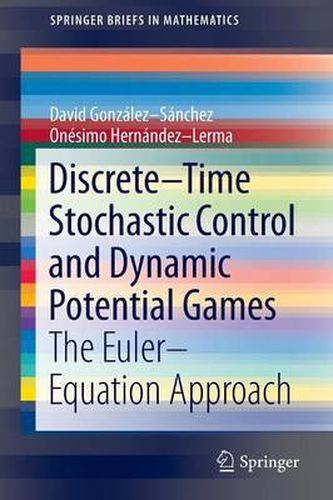Readings Newsletter
Become a Readings Member to make your shopping experience even easier.
Sign in or sign up for free!
You’re not far away from qualifying for FREE standard shipping within Australia
You’ve qualified for FREE standard shipping within Australia
The cart is loading…






This title is printed to order. This book may have been self-published. If so, we cannot guarantee the quality of the content. In the main most books will have gone through the editing process however some may not. We therefore suggest that you be aware of this before ordering this book. If in doubt check either the author or publisher’s details as we are unable to accept any returns unless they are faulty. Please contact us if you have any questions.
There are several techniques to study noncooperative dynamic games, such as dynamic programming and the maximum principle (also called the Lagrange method). It turns out, however, that one way to characterize dynamic potential games requires to analyze inverse optimal control problems, and it is here where the Euler equation approach comes in because it is particularly well-suited to solve inverse problems. Despite the importance of dynamic potential games, there is no systematic study about them. This monograph is the first attempt to provide a systematic, self-contained presentation of stochastic dynamic potential games.
$9.00 standard shipping within Australia
FREE standard shipping within Australia for orders over $100.00
Express & International shipping calculated at checkout
Stock availability can be subject to change without notice. We recommend calling the shop or contacting our online team to check availability of low stock items. Please see our Shopping Online page for more details.
This title is printed to order. This book may have been self-published. If so, we cannot guarantee the quality of the content. In the main most books will have gone through the editing process however some may not. We therefore suggest that you be aware of this before ordering this book. If in doubt check either the author or publisher’s details as we are unable to accept any returns unless they are faulty. Please contact us if you have any questions.
There are several techniques to study noncooperative dynamic games, such as dynamic programming and the maximum principle (also called the Lagrange method). It turns out, however, that one way to characterize dynamic potential games requires to analyze inverse optimal control problems, and it is here where the Euler equation approach comes in because it is particularly well-suited to solve inverse problems. Despite the importance of dynamic potential games, there is no systematic study about them. This monograph is the first attempt to provide a systematic, self-contained presentation of stochastic dynamic potential games.